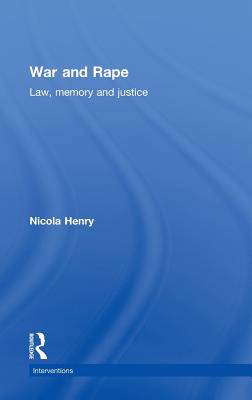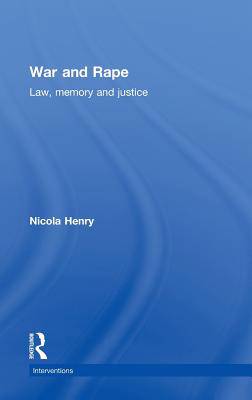
- Afhalen na 1 uur in een winkel met voorraad
- Gratis thuislevering in België vanaf € 30
- Ruim aanbod met 7 miljoen producten
- Afhalen na 1 uur in een winkel met voorraad
- Gratis thuislevering in België vanaf € 30
- Ruim aanbod met 7 miljoen producten
Omschrijving
Wartime rape has been virulent in wars of sovereignty, territory, conquest, religion, ideology and liberation, yet attention to this crime has been sporadic throughout history. Rape remains 'unspeakable', particularly within law. Moreover, rape has not featured prominently in post-conflict collective memory. And even when rape is 'remembered', it is often the subject of political controversy and heated debate.
In this book, Henry asks some critical questions about the relationship between mass rape, politics and law. In what ways does law contribute to the collective memory of wartime rape? How do 'counter-memories' of victims compete with the denialism of wartime rape? The text specifically analyses the historical silencing of rape throughout international legal history and the potential of law to restore these silenced histories, it also examines the violence of law and the obstacles to individual and collective redemption. Tracing the prosecution of rape crimes within contemporary courts, Henry seeks to argue that politics underscores the way rape is dealt with by the international community in the aftermath of armed conflict.
Providing a comprehensive overview of the politics of wartime rape and the politics of prosecuting such crimes within international humanitarian law, this text will be of great interest to scholars of gender and security, war crimes and law and society.
Specificaties
Betrokkenen
- Auteur(s):
- Uitgeverij:
Inhoud
- Aantal bladzijden:
- 182
- Taal:
- Engels
- Reeks:
Eigenschappen
- Productcode (EAN):
- 9780415564724
- Verschijningsdatum:
- 26/11/2010
- Uitvoering:
- Hardcover
- Formaat:
- Genaaid
- Afmetingen:
- 156 mm x 234 mm
- Gewicht:
- 435 g

Alleen bij Standaard Boekhandel
Beoordelingen
We publiceren alleen reviews die voldoen aan de voorwaarden voor reviews. Bekijk onze voorwaarden voor reviews.











